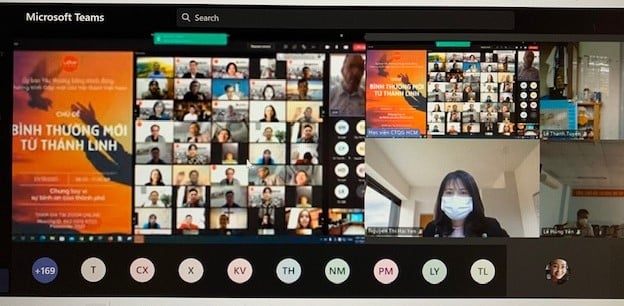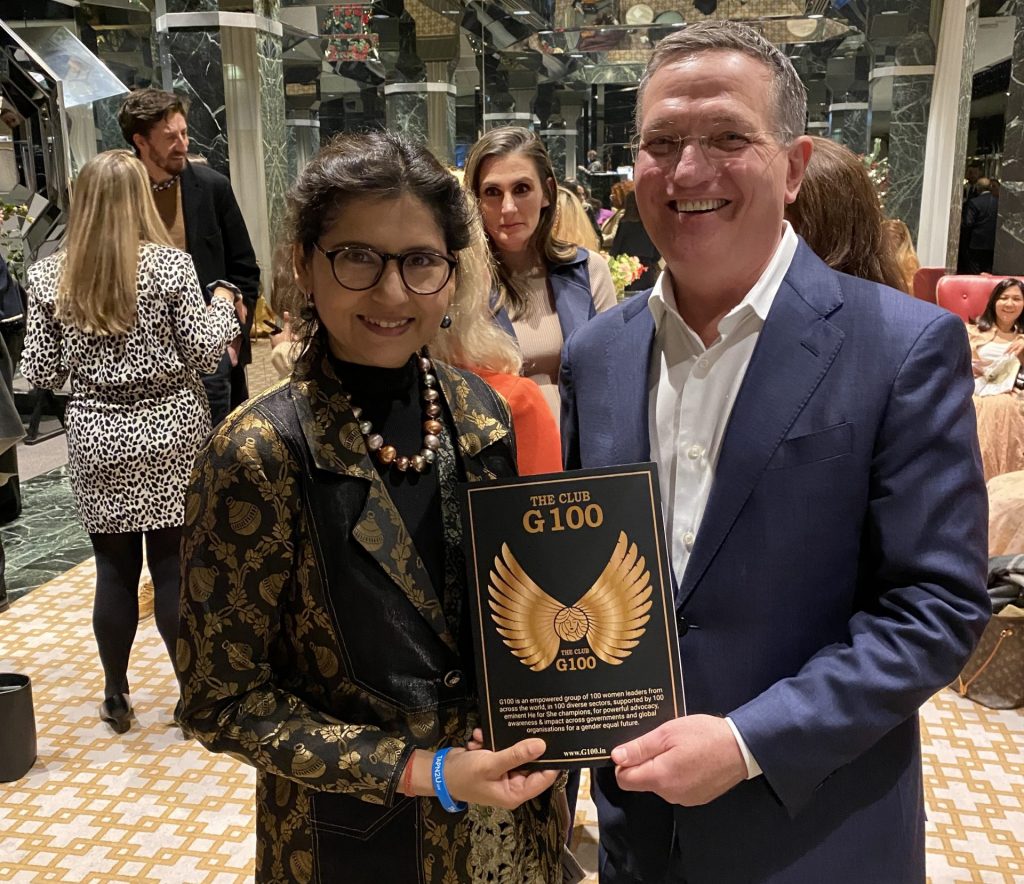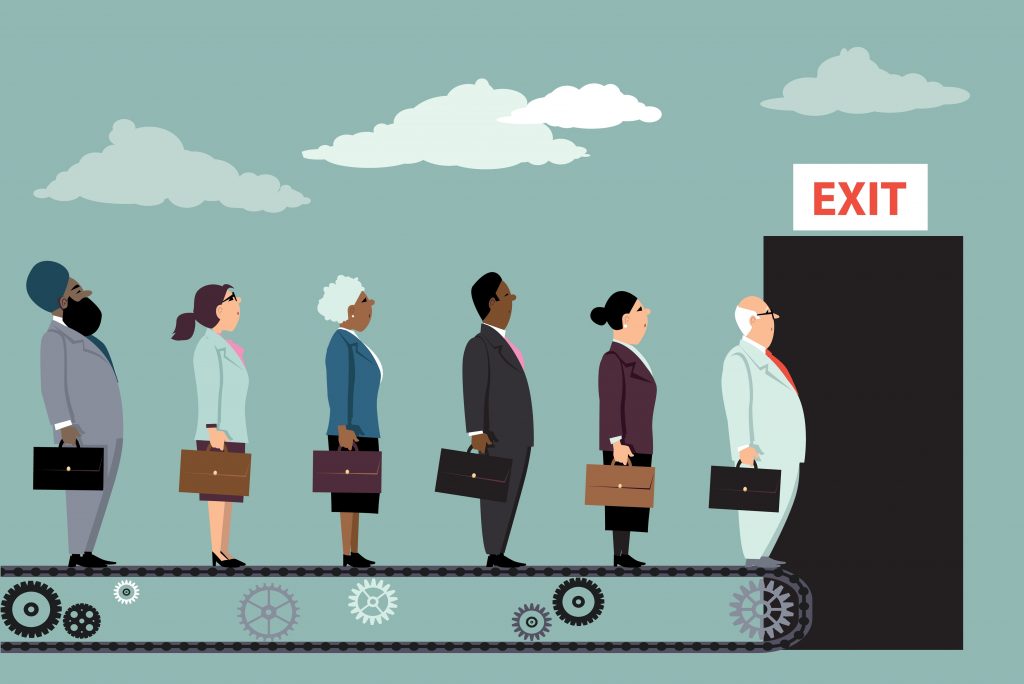
by Kent Johnson, J.D., Senior Corporate Advisor, Religious Freedom & Business Foundation
Part of the blog series, Authenticity & Connection
The so-called “Great Resignation” has prompted corporate soul-searching. Gallup says 48% of workers are actively searching for a change. Many workers are suffering from disconnection. The physical isolation entailed in the pandemic response heightens that sense of disconnection. What can stem the exodus?
Relationships matter. Employees are much less likely to leave if they have meaningful personal connections with coworkers, and if they feel appreciated and valued. So, especially in this spatially challenged environment, a strategic focus on authentic and deep relationships among employees is warranted.
Here are three of the hurdles to relationships that flow from “work from home”:
(1) Self-Segregation. In the past, many of us were physically grouped with a diverse team of colleagues at the office. Personality conflicts and differences of outlook had to be worked through. Now, it’s easier to avoid meaningful connection with those with whom we disagree. We’re more prone to open up personally only to those who – we think – are like us. [To be sure, even working side by side, people can still “hide”; but it’s harder to do so. And working physically near one another can add opportunity for friction; but, navigated with mutual respect, it also opens avenues for more meaningful connection.]
(2) Fear and Distrust. Our natural tendency is to connect soulfully only with “like minded” people, and worry more about “those people” who are different. Are THEY trying to restrict our freedoms? To force us to act like we adopt worldviews that are contrary to our core beliefs? Physical isolation may drive “like minded” people together virtually, but it makes trust across diverse employees more challenging.
(3) Superficial Conformity. Physically set apart and relegated to their respective personal spaces, it’s tougher for diverse employees to authentically connect with others on the heartfelt personal WHYs of their work. We expect people to work collaboratively in a manner that conforms to the company’s high-sounding stated values; yet we often stifle their expression of how those company values dovetail with their own. Lacking a sense of personal connection, it often seems that the official stated company values lack depth, sincerity, connection and consequence. It’s no wonder, then, why employees’ loyalty to the company is thin; and that they’re looking elsewhere.
So, what can be done? I’ll start by mentioning two courses of action that DON’T work: First, “faith avoiding” – doing nothing to encourage authentic person-to-person communication – will enable the natural forces of isolation to prevail. Many workers equate management silence on matters of faith and belief to a gag order… they must not speak of the things that define them as persons. Second, on the other extreme, a heavy-handed approach to religious diversity will backfire if the company is seen as requiring people of faith (or atheists or agnostics) to compromise their core beliefs.
Much of the isolating effect of electronic media and “work from home” can be overcome if the company skillfully promotes authentic and respectful communications about faith and belief. As David Miller of Princeton and Jeff Haanen of the Denver Institute for Faith and Work have noted, merely “tolerating” faith falls short. Many employees long for richer connection with their coworkers; but they’re constrained by the impression that the company views such topics as distractions.
The focus on encouraging employees to speak of their core identity and belief isn’t a fringe movement. As the Religious Freedom & Business Foundation has noted, premier companies are embracing religious diversity in positive ways (see the REDI Index). But many employers still actively avoid such topics, or, at best, tolerate minimal references to faith like one might have to tolerate mosquitoes.
In sum, a corporate culture of meaningful, authentic connection requires an intentional strategy that leans against the isolating forces of physical separation, so that when we do gather, and even if we don’t, it’s clear that we value each other as human beings and care about one another regardless of our differences.
Encourage your employees to talk with one another about their core identity and core beliefs that relate to work. Benchmark with the growing number of companies that have navigated this well. Engage consultants like the Religious Freedom & Business Foundation that have helped, and stem the tide of The Great Resignation.
 One of the pressing religious liberty issues of the day is a deeply troubling increase in antisemitism in the United States. On Monday, Jan. 10, at 12 pm ET, EEOC Commissioners Andrea Lucas and Keith Sonderling participated in an important conversation hosted by the Louis D. Brandeis Center about combatting antisemitism in the workplace.
One of the pressing religious liberty issues of the day is a deeply troubling increase in antisemitism in the United States. On Monday, Jan. 10, at 12 pm ET, EEOC Commissioners Andrea Lucas and Keith Sonderling participated in an important conversation hosted by the Louis D. Brandeis Center about combatting antisemitism in the workplace.
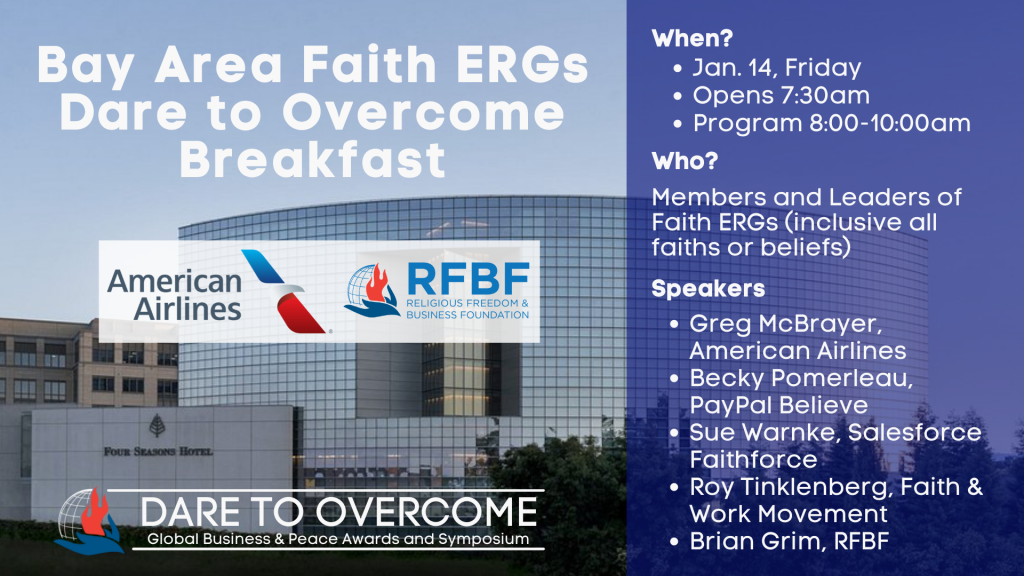


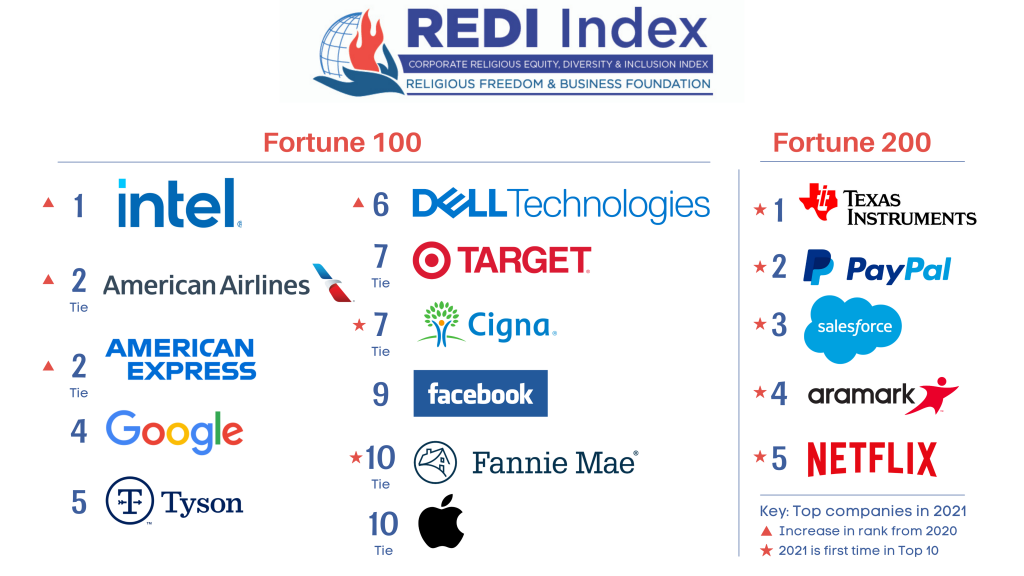


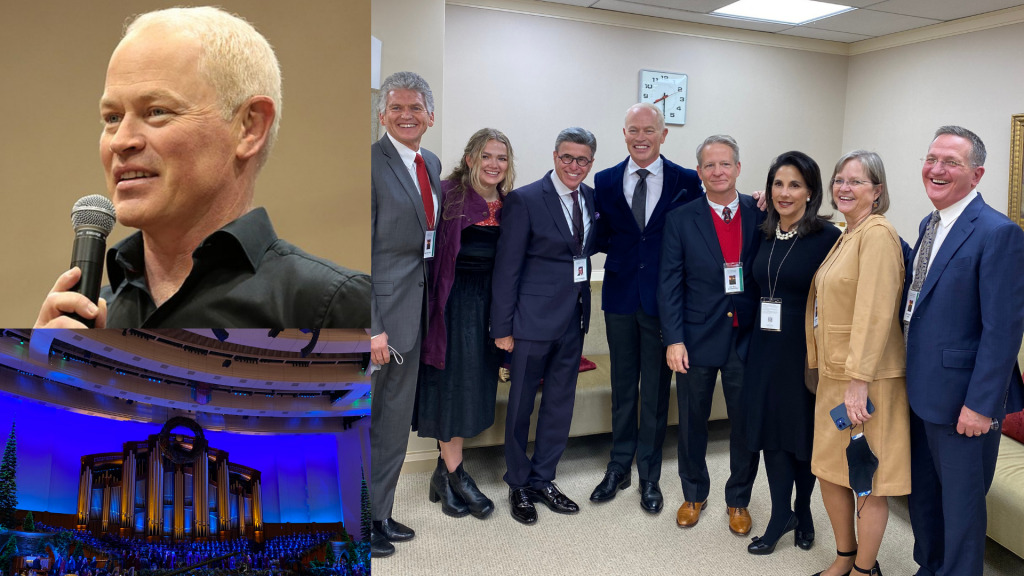
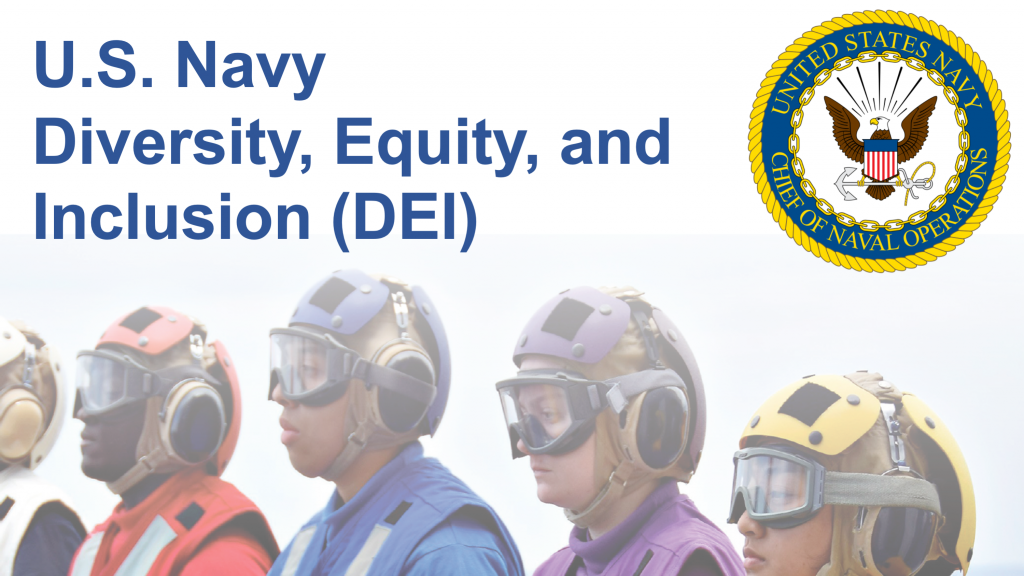 On December 9,
On December 9, 
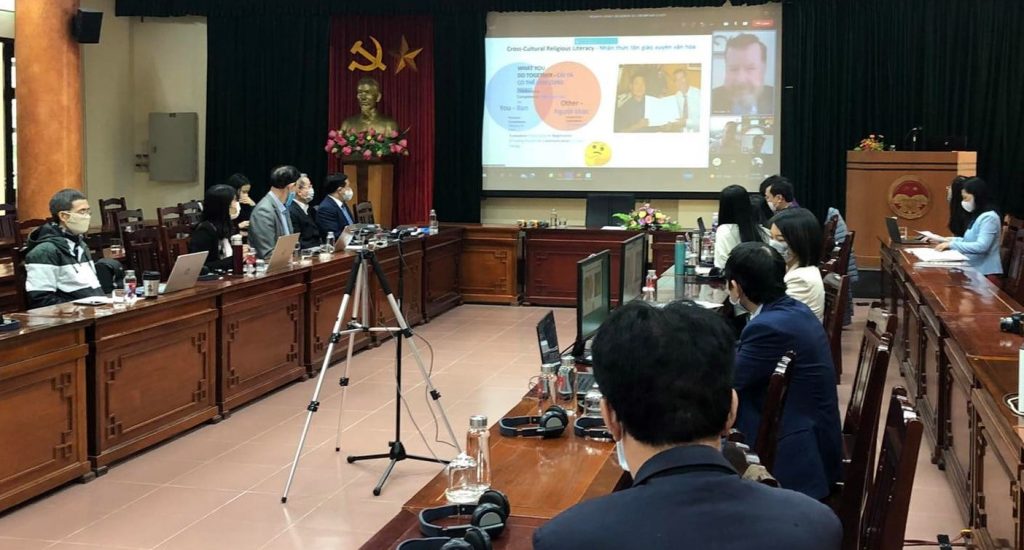 On. Dec. 9, Dr. Brian Grim, President of the Religious Freedom & Business Foundation, introduced more than 160 religious education and legal trainers in 63 different municipalities and provinces of Vietnam to how the world’s biggest and best multinational corporations, such as Google and the Intel Corporation, are building cultural and religious pluralism that results in productivity, profit and social progress.
On. Dec. 9, Dr. Brian Grim, President of the Religious Freedom & Business Foundation, introduced more than 160 religious education and legal trainers in 63 different municipalities and provinces of Vietnam to how the world’s biggest and best multinational corporations, such as Google and the Intel Corporation, are building cultural and religious pluralism that results in productivity, profit and social progress.